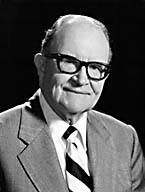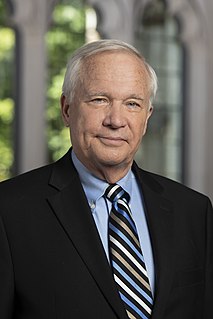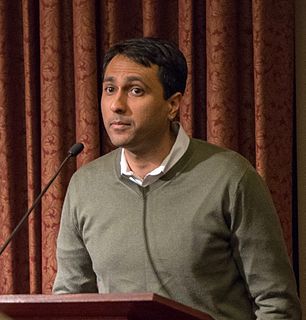Top 872 Scripture Quotes & Sayings - Page 15
Explore popular Scripture quotes.
Last updated on April 20, 2025.
The gospel of submission, commitment, decision, and victorious living is not good news about what God has achieved but a demand to save ourselves with God’s help. Besides the fact that Scripture never refers to the gospel as having a personal relationship with Jesus nor defines faith as a decision to ask Jesus to come into our heart, this concept of salvation fails to realize that everyone has a personal relationship with God already: either as a condemned criminal standing before a righteous judge or as a justified coheir with Christ and adopted child of the Father.
A false identity is any lie that contradicts our God-given identities through Scripture. These false identities can be created by ourselves because of sin in our lives, choices made, or wrong turns taken and the regret, guilt, and shame that follows. Other false identities are handed to us by outside sources, maybe a damaging word spoken to us by someone or a childhood of abuse. However, not all false identities are negative on the surface, such as successful, attractive, wealthy, athletic, or talented. But even those identities can become false when we place too much of our weight on them.
America, we cannot turn back. Not with so much work to be done. Not with so many children to educate, and so many veterans to care for. Not with an economy to fix and cities to rebuild and farms to save. Not with so many families to protect and so many lives to mend. America, we cannot turn back. We cannot walk alone. At this moment, in this election, we must pledge once more to march into the future. Let us keep that promise - that American promise - and in the words of Scripture hold firmly, without wavering, to the hope that we confess.
My favorite Scripture is Philippians 4:13, "I can do all things through Christ who strengthens me." God is our strength; his love, demonstrated through us, can move mountains and change hearts. Being a Christian is actually a competitive edge; provided that you place your faith first above even your professional aspirations. Even if in the past you've compromised and slid partway down that slippery slope, it's still possible to find your way back. If I've learned anything, it's this: to get where you want to go, you first have to become the person God wants you to be.
We have to make a distinction between members of the Jewish community who sincerely are trying to follow the laws, statutes and commandments of God in their covenant relationship with Him, but among them are those who say they are Jews and they are not. And this is why the scripture refers to them as the Synagogue of Satan because their work is an evil work. They are doing exactly what Satan is supposed to do - which is to spread evil, not to contain evil to himself but to spread evil to others and make others deviate from the laws, statutes and commandments of God.
In seminary he had been taught that God had completely stopped any overt communication with moderns, preferring to have them only listen to and follow sacred Scripture, properly interpreted, of course. God's voice had been reduced to paper, and even that paper had to be moderated and deciphered by the proper authorities and intellects. It seemed that direct communication with God was something exclusively for the ancients and uncivilized, while educated Westerner's access to God was mediated and controlled by the intelligentsia. Nobody wanted God in a box, just in a book.
Such debates [about the nature of Scripture], in my view, distract attention from the real point of what the Bible is there for. Squabbling over particular definitions of the qualities of the Bible is like a married couple squabbling over which of them loves the children more, when they should be getting on with bringing them up and setting them a good example. The Bible is there to enable God's people to be equipped to do God's work in God's world, not to give them an excuse to sit back smugly, knowing they possess all God's truth.
You might tell me that you have been engaging in some deep questioning and theological rethinking.1 You can no longer live with the faith you inherited from your parents or constructed earlier in your life. As you sort through your dogma and doctrine, you’ve found yourself praying less, less thrilled about worship, scripture, or church attendance. You’ve been so focused on sorting and purging your theological theories that you’ve lost track of the spiritual practices that sustain an actual relationship with God. You may even wonder if such a thing is possible for someone like you.
The beauty of the person of Christ, as represented in the Scripture, consists in things invisible unto the eyes of flesh. They are such as no hand of man can represent or shadow. It is the eye of faith alone that can see this King in his beauty. What else can contemplate on the untreated glories of his divine nature? Can the hand of man represent the union of his natures in the same person, wherein he is peculiarly amiable? What eye can discern the mutual communications of the properties of his different natures in the same person?
Contemporary Christianity, diverse and complex as we find it, actually may show more unanimity than the Christian churches of the first and second centuries. For nearly all Christians since that time, Catholics, Protestants, or Orthodox, have shared three basic premises. First, they accept the canon of the New Testament; second, they confess the apostolic creed; and third, they affirm specific forms of church institution. But every one of these - the canon of Scripture, the creed, and the institutional structure - emerged in its present form only toward the end of the second century.
What Grandfather Burton did for me was to write a sacred family record, the small plates of Burton, or, if you will, an inspirational family record. Much of what we now regard as scripture was not anything more or less than men writing of their own spiritual experiences for the benefit of their posterity. These scriptures are family records. Therefore, as a people we ought to write of our own lives and our own experiences to form a sacred record for our descendants. We must provide for them the same uplifting, faith-promoting strength that the ancient scriptures now give us.
We cannot attain to the understanding of Scripture either by study or by the intellect. Your first duty is to begin by prayer. Entreat the Lord to grant you, of His great mercy, the true understanding of His Word. There is no other interpreter of the Word of God than the Author of this Word, as He Himself has said, "They shall be all taught of God" (John 6:45). Hope for nothing from your own labors, from your own understanding: trust solely in God, and in the influence of His Spirit. Believe this on the word of a man who has experience.
If we fully trust that God is as beautiful as he reveals himself to be on the cross, we must regard the ugly surface appearance of these portraits to reflect the sinful way his people imagined God, not the way God actually is. But when we by faith look through the ugly surface of these portraits, we can see God stooping out of love to meet his people where they are at and to bear their sin, which is why in Scripture he takes on an ugly surface appearance that reflects the ugliness of their sin.
I fear that many of us rush about from day to day taking for granted the Holy Scriptures. We scramble to honor appointments with physicians, lawyers, and businessmen. Yet we think nothing of postponing interviews with Deity postponing scripture study. Little wonder we develop anemic souls and lose our direction in living. How much better it would be if we planned and held sacred fifteen or twenty minutes a day for reading the scriptures. Such interviews with Deity would help us recognize his voice and enable us to receive guidance in all of our affairs.
Though we have clear and full scriptures in the New Testament for abolishing the Ceremonial law, yet we nowhere read in all the new Testament of the abolishing of the Judicial law, so far as it did concern the punishing of sins against the Moral law, of which Heresy and seducing of souls is one, and a great one. Once God did reveal his will for punishing those sins by such and such punishments. He who will hold that the Christian Magistrate is not bound to inflict such punishments for such sins, is bound to prove that those former laws of God are abolished, and to shew some scripture for it.
Theologians will protest that the story of Abraham sacrificing Issac should not be taken as literal fact. And the appropriate response is twofold: first, many, many people even to this day, do take the whole of their Scripture to be literal fact, and they have a great deal of political power over the rest of us, especially in the United States and in the Islamic world. Second, if not of literal fact, how should we take the story? As an alagory? Then an alagory for what? Surely, nothing praiseworthy. As a moral lesson? But what kind of morals could one derive from this appalling story?
We can preach the Gospel all day long, but that won't win souls. That won't win the hearts of the people. We can talk, try to theorize, theologize, reason, argue, debate, and spend time trying to prove that Jesus lived, but that won't win a heart. How often do we see the religious mindset that believes that the more Scripture quoting, the more yelling, the more hell fire and brimstone preaching, the greater the chance to win someone over for the Kingdom? Likewise, how often do we see people sitting or standing there listening in stone-cold silence or indifference?
I have serious problems with fundamentalist Christians and their creationist theories. Although I believe that scripture is divinely inspired and infallible, I have a hard time going along with the belief that the whole creation process occurred in six twenty-four hour days. My skepticism is due, in part, to the fact that the Bible says that the sun wasn’t created until the fourth day of creation (Genesis 1:16-19). I have a hard time figuring how twenty-four hour days could have been measured before that.
Your vision of your future will help you press forward. Take a few minutes to envision where you want to be in one year or two or five. Then take action to prepare yourselves. People don’t just run a marathon when they decide to do it. They must train daily, slowly building stamina and endurance to run the 26.2-mile distance. So it is with life. It is daily diligence with prayer and scripture study that will help you reach your goals. Your daily decisions will influence generations.
Trinity!! Higher than any being, any divinity, any goodness! Guide of Christians in the wisdom of heaven! Lead us up beyond unknowing and light, up to the farthest, highest peak of mystic scripture, where the mysteries of God's Word lie simple, absolute and unchangeable in the brilliant darkness of a hidden silence. Amid the deepest shadow they pour overwhelming light on what is most manifest. Amid the wholly unsensed and unseen they completely fill our sightless minds with treasures beyond all beauty.
And God grant that His fire be not quenched! God save us from any smoothing over of these questions in the interests of a hollow pleasantness; God grant that great questions of principle may never rest until they are stettled right! It is out of such times of questioning that great revivals come. God grant that it may be so today! Controversy of the right sort is good; for out of such controversy, as Church history and Scripture alike teach, there comes the salvation of souls.
People do not drift toward Holiness. Apart from grace-driven effort, people do not gravitate toward godliness, prayer, obedience to Scripture, faith, and delight in the Lord. We drift toward compromise and call it tolerance; we drift toward disobedience and call it freedom; we drift toward superstition and call it faith. We cherish the indiscipline of lost self-control and call it relaxation; we slouch toward prayerlessness and delude ourselves into thinking we have escaped legalism; we slide toward godlessness and convince ourselves we have been liberated.
You can think too highly of your interpretations of Scripture, but you cannot think too highly of Scriptures interpretation of itself. You can exaggerate your authority in handling the Scriptures, but you cannot exaggerate the Scriptures authority to handle you. You can use the word of God to come to wrong conclusions, but you cannot find any wrong conclusions in the word of God.
So we see, brethren and sisters that the words of Christ can be a personal Liahona for each of us, showing us the way. Let us now be slothful because of the easiness of the way. Let us in faith take the words of Christ into our minds and into our hearts as they are recorded in sacred scripture and as they are uttered by living prophets, seers, and revelators. Let us with faith and diligence feast upon the words of Christ, for the words of Christ will be our spiritual Liahona telling us all things what we should do.
In marriage we have a duty to God, our spuses, the world, and future generations. But we are sinners. A husband and wife need to acknowledge that when the Bible speaks of fools, it is not just speaking about other people, but about them as well. Even the wisest among us has moments of folly. So God gives us spouses to serve as wise friends by praying with and for us, attending church with us, speaking truth, and providing Scripture along with good books and online classes, lectures, and sermons to nourish fruitfulness in our lives.
How many times have you struggled with the interpretation of certain Biblical texts related to the time of Jesus' return because they did not fit with a preconceived system of eschatology? Russell's Parousia takes the Bible seriously when it tells us of the nearness of Christ's return. Those who claim to interpret the Bible literally, trip over the obvious meaning of these time texts by making Scripture mean the opposite of what it unequivocally declares. Reading Russell is a breath of fresh air in a room filled with smoke and mirror hermeneutics.
Sacred Scripture, since it has no science above itself, can dispute with one who denies its principles only if the opponent admits some at least of the truths obtained through divine revelation; thus we can argue with heretics from texts in Holy Writ, and against those who deny one article of faith we can argue from another. If our opponent believes nothing of divine revelation, there is no longer any means of proving the articles of faith by reasoning, but only of answering his objections - if he has any - against faith.
When our intellect has shaken off its many opinions about created things, then the inner principle of truth appears clearly to it, providing it with a foundation of real knowledge and removing its former preconceptions as though removing scales from eyes, as happened in the case of St. Paul (cf. Acts 9:18). For an understanding of Scripture that does not go beyond the literal meaning, and a view of the sensible world that relies exclusively on sense perception, are indeed scales, blinding the soul's visionary faculty and preventing access to the pure Logos of truth.
We say, then, that Scripture clearly proves this much, that God by his eternal and immutable counsel determined once for all those whom it was his pleasure one day to admit to salvation, and those whom, on the other hand, it was his pleasure to doom to destruction. We maintain that this counsel, as regards the elect, is founded on his free mercy, without any respect to human worth, while those whom he dooms to destruction are excluded from access to life by a just and blameless, but at the same time incomprehensible judgment
I dream of a world where people from different backgrounds are praying and working for the flourishment of communities different from them, and I find my sustenance not only in these stories in scripture, but in stories of human existence also - the story of the Bosnian Muslim man who took to a Serbian couple with a new baby a liter of milk every day during that horrible struggle in the former Yugoslavia, because he said even if our tribes, our nations, are at war with each other, there is something deeply human about me wishing that your baby survives and is secure.






























